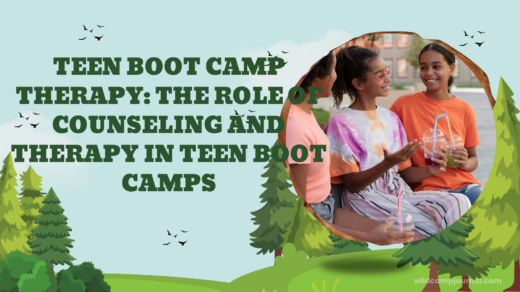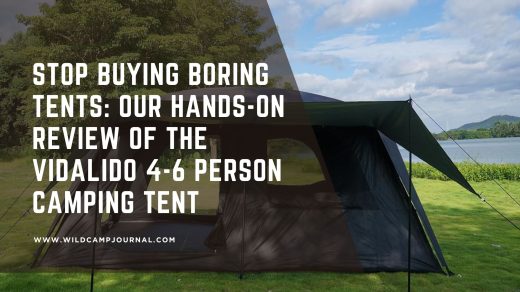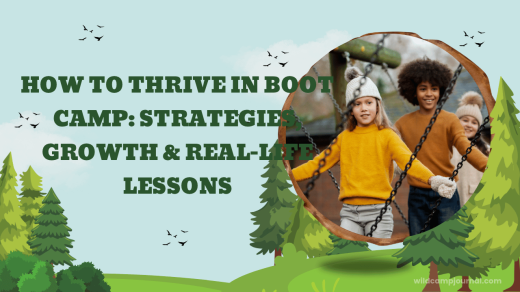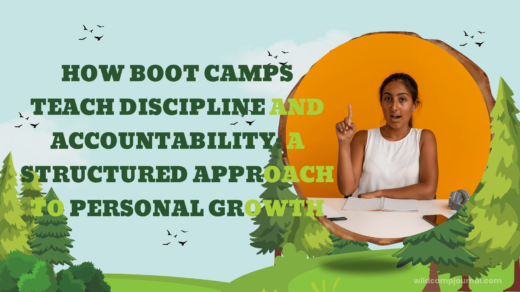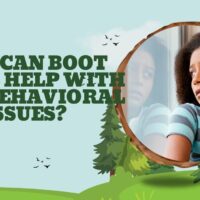When I needed to choose the best boot camp for troubled teens, I explored every detail. This blog post compiled by me will guide through the program types, costs, safety tips, and all you need to make the best decision for your teen.
Table of Contents
Understanding the Challenges of Raising Troubled Teens

Parenting teenagers can be challenging, but the situation becomes significantly more complex when a teen displays troubling behaviors.
These may include defiance, substance abuse, academic struggles, or severe emotional withdrawal.
Such behaviors not only strain family dynamics but can also jeopardize the teen’s future if left unaddressed.
Troubled teens often require intensive intervention to overcome these challenges and rediscover positive pathways.
For many families, boot camps designed for troubled teens emerge as a potential solution, providing a structured and immersive environment that helps redirect their behaviors and mindset.
What Are Boot Camps for Troubled Teens?

Boot camps for troubled teens are specialized programs that combine structure, discipline, and therapy to address behavioral, emotional, and social difficulties in adolescents.
Modeled on military-style programs or therapeutic environments, these camps aim to instill discipline, improve emotional resilience, and equip teens with tools to make healthier choices.
While they vary in format and focus, most boot camps emphasize rigorous routines, physical activities, therapeutic interventions, and skill-building exercises, creating a holistic approach to personal growth.
Purpose of This Guide: Making an Informed Decision
Choosing the right boot camp for your troubled teen is a significant decision, one that requires careful thought and comprehensive research.
This guide is designed to help parents understand the available options, evaluate the quality and suitability of various programs, and ultimately select a boot camp that aligns with their child’s unique needs and circumstances.
By addressing key considerations such as types of programs, costs, safety measures, and long-term outcomes, this guide empowers families to make confident, informed choices that can lead to meaningful change in their teen’s life.
Identifying the Need for a Boot Camp

Recognizing Signs of Behavioral Issues in Teens
Identifying the need for the best boot camp for troubled teens begins with understanding the behaviors and challenges that suggest intensive intervention is required.
Signs to watch for include:
- Chronic Defiance and Authority Resistance: If your teen consistently refuses to follow rules or exhibits hostility toward authority figures, it may signal deeper issues requiring professional intervention.
- Struggles with Substance Abuse or Addiction: Experimentation with drugs or alcohol can quickly escalate to addiction, posing severe risks to a teen’s health, education, and relationships.
- Persistent Emotional or Social Withdrawal: A prolonged lack of engagement with family and friends, combined with signs of depression or anxiety, can be indicative of underlying emotional challenges.
When Traditional Interventions Fail
Parents often turn to traditional methods such as counseling, family therapy, or school support systems to address these concerns.
However, these approaches might not always provide sufficient structure or intensity, especially for teens with more severe or ingrained behavioral problems.
In such cases, a boot camp can offer the disciplined and immersive environment needed to foster significant change.
Consulting Professionals: Therapists, Counselors, and Educational Specialists
Before enrolling your child in a boot camp for troubled teens, it is crucial to seek advice from qualified professionals.
Therapists and school counselors can provide assessments of your teen’s specific needs and challenges.
Educational specialists may also recommend suitable programs based on their expertise and experience with similar cases.
These consultations ensure that the decision to opt for a boot camp is informed and tailored to your child’s unique circumstances.
Understanding Different Types of Boot Camps

Choosing the best boot camp for troubled teens starts with understanding the various types available.
Each program is designed to address specific needs, ensuring that families can find the right fit for their teen. Below are the primary types of boot camps to consider:
Military-Style Boot Camps
Military-style boot camps focus on instilling discipline, structure, and respect through a highly regimented routine.
These programs often include:
- Strict schedules and physical training
- Emphasis on following rules and developing discipline
- Team-building activities to foster cooperation and accountability
While military-style boot camps can be effective for addressing defiant behavior, they may not provide the therapeutic support needed for deeper emotional or psychological issues.
Therapeutic Boot Camps
Therapeutic boot camps combine discipline with a strong focus on mental health and emotional well-being.
These programs typically include:
- Individual and group therapy sessions
- Life skills development and coping strategies
- Collaboration with licensed therapists and counselors
Therapeutic boot camps are ideal for teens struggling with underlying issues such as trauma, anxiety, or depression, as they provide a comprehensive approach to healing and growth.
Adventure and Wilderness Programs
Adventure and wilderness programs utilize outdoor activities to promote personal growth and resilience.
These camps offer:
- Challenging physical and mental tasks in natural settings
- Opportunities to develop problem-solving skills and self-confidence
- Emphasis on teamwork and leadership
These programs are particularly beneficial for teens who thrive in non-traditional learning environments and enjoy outdoor experiences.
Faith-Based Boot Camps
Faith-based boot camps integrate spiritual guidance with structured programs. Key features include:
- Incorporation of religious teachings and values
- Support for teens to build a sense of purpose and morality
- Activities that blend faith with therapy and personal development
Faith-based programs are suitable for families seeking a spiritual foundation for their teen’s transformation.
Evaluating Core Program Features

Behavioral and Academic Support Services
The best boot camp for troubled teens offers a strong emphasis on both behavioral and academic support.
Teens struggling with emotional and behavioral challenges often experience setbacks in their academic performance.
Comprehensive programs integrate individualized educational plans to ensure that teens keep up with their studies while working on personal growth.
Behavioral support, such as counseling and structured routines, helps teens develop coping strategies and positive habits.
Physical Training and Discipline Regimen
A core element of many boot camps is physical training, which builds resilience, discipline, and teamwork.
Activities such as obstacle courses, endurance training, and team sports foster a sense of achievement while instilling the value of hard work and perseverance.
This physical component complements the emotional and social development goals of the program, creating a balanced approach to transformation.
Group and Individual Therapy
Effective boot camps for troubled teens include both group and individual therapy sessions.
Group therapy promotes social interaction and allows teens to share their struggles and successes with peers facing similar challenges.
Individual therapy offers a personalized approach, helping teens address their unique emotional needs and underlying issues, such as trauma, anxiety, or anger management.
These therapeutic interventions are vital for long-term behavioral change.
Life Skills Training
To ensure lasting success, boot camps often focus on life skills training that prepares teens for independence and responsibility.
Skills such as time management, conflict resolution, budgeting, and communication are taught through hands-on activities and real-world scenarios.
This equips teens with the tools needed to transition back into their families and communities as more confident and capable individuals.
Considering Location and Duration

Local vs. Out-of-State Camps: Pros and Cons
When choosing the best boot camp for troubled teens, location plays a pivotal role in the decision-making process.
Families often debate between enrolling their teen in a local boot camp or sending them to an out-of-state program.
Each option comes with its unique benefits and challenges:
- Local Camps: Staying close to home allows for easier visitation and smoother transitions during and after the program. It also fosters opportunities for parental involvement in therapy sessions or workshops, which can strengthen family dynamics.
- Out-of-State Camps: Out-of-state programs provide teens with a fresh environment, free from familiar distractions or negative influences. This distance can also encourage greater independence and personal growth.
Parents must weigh these factors carefully, considering their teen’s needs, emotional resilience, and the logistical implications of travel.
Program Length: Short-Term vs. Long-Term
The duration of a boot camp program is another critical factor in selecting the best boot camp for troubled teens. Programs generally fall into two categories:
- Short-Term Programs: These typically last a few weeks and are designed to provide an intensive burst of structure and intervention. While effective for instilling immediate discipline, they may lack the depth needed for addressing deeply rooted issues.
- Long-Term Programs: Spanning several months, long-term programs offer a more comprehensive approach, with greater emphasis on therapeutic work and skill-building. They are often better suited for teens with severe behavioral or emotional challenges.
Selecting the appropriate program length depends on the severity of your teen’s issues, their capacity for sustained engagement, and the long-term goals for their development.
Researching Accreditation and Credentials

Importance of Licenses and Certifications
When searching for the best boot camp for troubled teens, ensuring that the program is properly licensed and certified should be a top priority.
Accreditation signifies that the boot camp meets established standards for quality, safety, and effectiveness.
Without proper licensing, you risk enrolling your teen in a program that may lack appropriate oversight, trained staff, or adequate facilities.
Look for programs that are accredited by recognized organizations, such as the National Association of Therapeutic Schools and Programs (NATSAP) or the Council on Accreditation (COA).
These accreditations demonstrate that the program has undergone rigorous evaluation and meets high standards of care.
Compliance with State and Federal Regulations
A credible boot camp must comply with all applicable state and federal regulations.
This includes adhering to laws governing youth care, safety protocols, staff training, and facility operations.
Request documentation or speak directly to administrators to confirm compliance.
A program that operates transparently and is upfront about its regulatory adherence is more likely to provide a safe and positive experience for your teen.
Reviews and Endorsements from Trusted Sources
Reading reviews and endorsements can provide valuable insights into the quality and reputation of a boot camp.
Here are three steps to evaluate this information effectively:
- Explore Online Testimonials: Visit the program’s website and third-party review platforms to gather feedback from parents and alumni. Look for consistent positive themes or recurring issues.
- Seek Recommendations: Consult professionals such as therapists, school counselors, or trusted advisors who may have experience with specific boot camps.
- Verify Success Stories: Evaluate whether the program’s claimed success rates or transformations are backed by authentic and measurable evidence.
By thoroughly researching accreditation, regulatory compliance, and endorsements, you’ll be better equipped to choose a boot camp that aligns with your teen’s needs and ensures their safety and well-being.
Reviewing Costs and Financial Options

Understanding Tuition Fees and Additional Costs
Choosing the best boot camp for troubled teens involves a significant financial commitment.
It’s important to understand all the associated costs:
- Tuition Fees: This covers the basic program elements, including accommodation, meals, and activities.
- Additional Costs: These may include therapy sessions, specialized courses, uniforms, travel expenses, and medical care.
To avoid surprises, request a detailed breakdown of all potential expenses before enrolling your teen in a program.
Financial Aid, Scholarships, and Grants
Many boot camps offer financial assistance options to make their programs accessible for families.
These may include:
- Payment Plans: Allowing parents to spread out costs over time.
- Scholarships: Often need-based or merit-based, offered by individual camps or related organizations.
- Grants: Funding from non-profits or government programs supporting families in need.
Researching and applying for these financial aids can significantly ease the financial burden.
Insurance Coverage for Treatment Programs
Some health insurance plans may cover parts of the cost for therapeutic programs at boot camps.
Coverage may include:
- Therapy and counseling sessions
- Treatment for diagnosed mental health conditions
- Substance abuse programs
Consult with your insurance provider to determine eligibility and ensure that the boot camp meets their requirements for reimbursement.
Understanding these financial considerations can help families find high-quality boot camps that fit their budget, ensuring the best outcomes for their troubled teens.
Evaluating Safety Measures and Staff Qualifications
Ensuring the safety and well-being of your teen should be a top priority when choosing the best boot camp for troubled teens.
Assessing the program’s safety protocols and staff qualifications is critical for providing a secure and supportive environment.
Staff Background Checks and Training
To guarantee the highest level of care, verify that the boot camp conducts thorough background checks on all staff members.
This helps ensure that those working closely with teens are qualified and trustworthy.
Important areas to focus on include:
- Experience in Working with Troubled Teens: Staff should have a proven track record of successfully guiding at-risk youth.
- Relevant Certifications: Look for credentials in counseling, therapy, crisis management, or education.
- Ongoing Training Programs: Staff should receive continuous training in areas such as de-escalation techniques, adolescent psychology, and emergency preparedness.
Safety Policies for Physical and Emotional Well-Being
A robust set of safety policies is essential to protect teens during their stay.
Here are some key policies to look for:
- Structured Supervision: Ensure there is round-the-clock supervision to prevent bullying, harassment, or other harmful behaviors.
- Physical Safety Measures: Facilities should have first aid stations, safety equipment, and emergency response protocols.
- Emotional Support Systems: Programs should include access to trained counselors or therapists who can help teens process emotions constructively.
Crisis Management and Emergency Preparedness
Boot camps for troubled teens should be well-prepared to handle unexpected situations.
Confirm that the program includes crisis management protocols to address emergencies effectively.
Key aspects to inquire about include:
- Emergency Action Plans: Clear procedures for responding to medical, natural, or behavioral emergencies.
- Staff Training in Crisis Intervention: All staff members should be trained to handle high-pressure situations calmly and competently.
- On-Site Medical Support: Access to medical professionals or quick transport to nearby healthcare facilities can make a crucial difference in emergencies.
By thoroughly evaluating these safety measures and staff qualifications, you can ensure that the boot camp you choose offers a secure and nurturing environment for your teen’s growth and transformation.
Aligning Values and Philosophies
Discipline vs. Therapy: What Fits Your Teen’s Needs?
When choosing the best boot camp for troubled teens, it’s essential to align the program’s approach with your teen’s specific needs.
Some teens may respond better to a structured, discipline-based environment, while others may require intensive therapeutic interventions to address deep-rooted emotional or behavioral issues.
Key factors to consider include:
- Nature of the Issues: If your teen struggles with defiance and needs clear boundaries, a discipline-focused program might be suitable. For emotional or mental health struggles, prioritize therapeutic options.
- Teen’s Personality: Some teens thrive in challenging environments that emphasize accountability, while others might feel overwhelmed or alienated.
- Program Outcomes: Evaluate whether the camp’s primary objective is behavioral correction or holistic emotional growth.
By understanding what your teen needs, you can select a program that fosters their growth and avoids exacerbating existing challenges.
Cultural and Religious Compatibility
Teens often thrive in environments that resonate with their cultural or religious values.
When researching boot camps:
- Look for Programs That Align with Your Values: Ensure the program respects and incorporates your family’s beliefs.
- Assess Compatibility with Teen’s Background: Cultural sensitivity can play a significant role in a teen’s comfort and adaptability within the program.
- Faith-Based Programs: If religion is central to your teen’s identity, consider faith-based boot camps that integrate spiritual growth with discipline and therapy.
By considering cultural and religious compatibility, you create a supportive space where your teen feels understood and respected.
Parental Involvement and Family Integration
Effective boot camps recognize the importance of involving parents in the therapeutic process and promoting family reintegration.
Ways Programs Facilitate Parental Involvement:
- Regular Updates: Providing parents with progress reports and the opportunity to communicate with staff.
- Family Therapy Sessions: Including parents in therapy helps address broader familial issues that may influence a teen’s behavior.
- Workshops and Training: Offering parental training sessions ensures that lessons learned in the program can be reinforced at home.
By choosing a camp that emphasizes family integration, you help ensure the progress made during the program translates into lasting changes for your teen and the entire family.
Navigating Testimonials and Success Stories
Importance of Parent Reviews and Alumni Feedback
Reviews and feedback from parents and alumni are invaluable when selecting the best boot camp for troubled teens.
These first-hand accounts can provide insights into the program’s effectiveness and its impact on teens and families.
Positive reviews often highlight measurable improvements in behavior, academic performance, and social skills.
Benefits of Reviewing Testimonials:
- Real-World Insights: Learn about others’ experiences in navigating similar challenges.
- Program Outcomes: Understand the short- and long-term results.
- Transparency: Gauge how forthcoming and honest the program is about its successes and areas for improvement.
Indicators of a Successful Program
When analyzing testimonials and success stories, look for common themes and key markers that indicate the program’s credibility and effectiveness.
Key Indicators of Success:
- Behavioral Transformation: Alumni testimonials describing significant behavioral changes.
- Family Reconnection: Evidence of improved relationships between teens and their families.
- Life Skill Development: Reports of teens acquiring new skills that enhance independence and responsibility.
- Continued Support: Alumni mentioning follow-up programs or continuous care post-camp.
Red Flags to Watch For in Reviews
Not all reviews are created equal, and certain warning signs may indicate deeper issues with the program.
Common Red Flags:
- Unclear Success Metrics: Testimonials lacking specifics about measurable outcomes.
- Reports of Harmful Practices: Any mention of unsafe or unethical treatment methods.
- Limited Transparency: Negative reviews describing difficulty in obtaining clear answers from the program’s staff.
- Overly Generic Praise: Reviews that feel overly promotional without providing detailed insights.
By scrutinizing testimonials and feedback, you can distinguish programs that genuinely help teens from those that may fall short of expectations.
Remember, that the major focus is choosing the “best boot camp for troubled teens” which should reflect a program’s capacity to align with your teen’s unique needs and your family’s values.
Planning for Long-Term Success
Post-Boot Camp Transition Strategies
Completing a boot camp program is a significant milestone, but the journey to long-term success requires a comprehensive plan for reintegration and sustained progress.
Here are some essential strategies to ensure a smooth transition:
- Develop a Structured Routine: Implement consistent daily schedules that promote discipline and accountability.
- Set Clear Expectations: Outline behavioral standards and reinforce positive habits learned during the boot camp.
- Monitor Progress: Regularly check on academic, emotional, and social developments to ensure continued improvement.
Continuing Therapy and Counseling
Therapy and counseling play a crucial role in maintaining the progress achieved during a boot camp.
Consistent engagement with mental health professionals ensures that your teen continues to address underlying issues and develops healthy coping mechanisms.
- Individual Therapy: Tailored sessions focusing on personal growth and emotional resilience.
- Family Therapy: Encourages open communication and helps rebuild trust and understanding within the family.
- Support Groups: Provides a safe environment where teens can share experiences and learn from others facing similar challenges.
Establishing a Stable Support System at Home
A strong support system is vital to ensure that your teen remains on a positive trajectory.
Here’s how you can create a nurturing and supportive environment:
- Foster Open Communication: Encourage honest and non-judgmental discussions about feelings and experiences.
- Build Positive Relationships: Strengthen bonds with family members and peers who have a positive influence.
- Encourage Healthy Activities: Promote extracurricular activities, hobbies, or volunteering opportunities that keep your teen engaged and motivated.
- Reinforce Values and Boundaries: Maintain consistency in expectations and consequences to provide a clear framework for behavior.
By focusing on these long-term strategies, you can help your teen sustain the progress made during their time at the best boot camp for troubled teens.
Success is not just about completing the program but creating an environment that supports ongoing growth and development.
Final Thought
Summarizing Key Factors to Consider
Choosing the best boot camp for troubled teens involves balancing several critical factors.
First, identify the specific challenges your teen is facing and determine whether a structured and immersive program is the right intervention.
Next, consider the type of boot camp—whether military-style, therapeutic, or wilderness-based—and ensure it aligns with your teen’s needs.
Review program credentials, staff qualifications, and safety measures to ensure your child’s well-being throughout their stay.
Finally, examine costs, financial options, and the program’s long-term success rates to make an informed choice.
Making a Confident and Informed Decision
As a parent, it’s natural to feel overwhelmed when making such an important decision for your child.
However, by conducting thorough research, consulting with professionals, and focusing on what’s best for your teen’s unique needs, you can confidently choose the best boot camp for troubled teens.
Remember, this decision is not just about addressing current challenges—it’s about equipping your teen with the tools they need to thrive and build a positive future.
Your commitment to their well-being can make all the difference.
FAQs
What age groups typically attend boot camps for troubled teens?
Most boot camps for troubled teens are designed for adolescents aged 12 to 18. The specific age range may vary by program, so it’s important to verify with the individual camp to ensure it aligns with your child’s age and developmental stage.
How can I tell if my child would benefit from a boot camp?
If your teen exhibits consistent behavioral issues, defies authority, struggles academically, or displays emotional withdrawal despite traditional interventions like therapy or counseling, a boot camp could be a beneficial option. Consulting with a trusted therapist or counselor can help assess whether your child’s needs align with what a boot camp offers.
What’s the average cost of a boot camp program?
The cost of a boot camp for troubled teens can range from $3,000 to $10,000 per month, depending on the program’s length, location, and included services like therapy and academic support. Financial aid, scholarships, or insurance coverage may be available for some programs, so it’s worth exploring those options.
Are boot camps effective for long-term behavioral changes?
Effectiveness depends on several factors, including the program’s quality, the teen’s level of participation, and family involvement after the program ends. Many boot camps integrate therapy, skill-building, and follow-up support to promote long-term success. It’s crucial to choose a well-reviewed program that aligns with your child’s needs to maximize its impact.
What alternatives exist if a boot camp isn’t a good fit?
If a boot camp isn’t suitable, alternatives include therapeutic boarding schools, outpatient therapy, family counseling, or wilderness therapy programs. Each option has unique benefits and may be better aligned with your teen’s specific challenges and family goals. A professional evaluation can help determine the best course of action.

